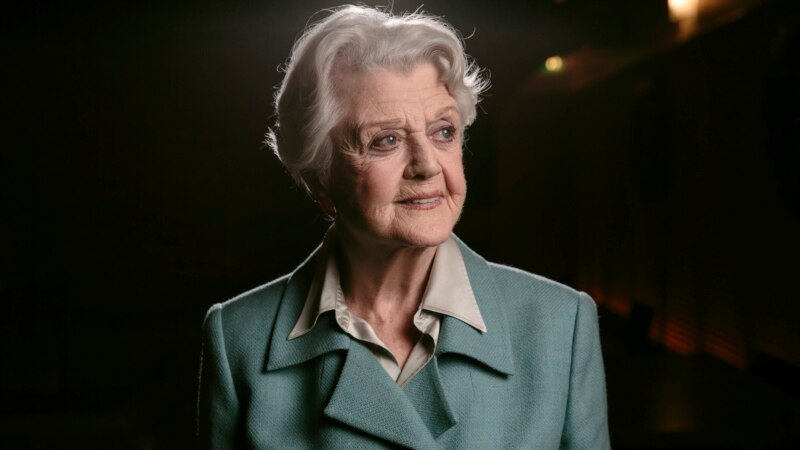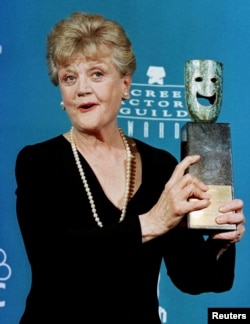This website uses cookies so that we can provide you with the best user experience possible. Cookie information is stored in your browser and performs functions such as recognising you when you return to our website and helping our team to understand which sections of the website you find most interesting and useful.
 new york —
new york —
Angela Lansbury, the big-eyed, scene-stealing British actress who kicked up her heels in the Broadway musicals "Mame" and "Gypsy" and solved endless murders as crime novelist Jessica Fletcher in the long-running TV series "Murder, She Wrote," has died. She was 96.
Lansbury died Tuesday at her home in Los Angeles, according to a statement from her three children. She died five days shy of her 97th birthday.
Lansbury won five Tony Awards for her Broadway performances and a lifetime achievement award. She earned Academy Award nominations as supporting actress for two of her first three films, "Gaslight" (1945) and "The Picture of Dorian Gray" (1946), and she was nominated again in 1962 for "The Manchurian Candidate" and her deadly portrayal of a Communist agent and the title character's mother.
Her mature demeanor prompted producers to cast her much older than her actual age. In 1948, when she was 23, her hair was streaked with gray so she could play a fortyish newspaper publisher with a yen for Spencer Tracy in "State of the Union."
Her stardom came in middle age when she became the hit of the New York theater, winning Tony Awards for "Mame" (1966), "Dear World" (1969), "Gypsy" (1975) and "Sweeney Todd" (1979).
She was back on Broadway and got another Tony nomination in 2007 in Terrence McNally's "Deuce," playing a scrappy, brash former tennis star, reflecting with another ex-star as she watches a modern-day match from the stands. In 2009, she collected her fifth Tony, for best featured actress in a revival of Noel Coward's "Blithe Spirit" and in 2015 won an Olivier Award in the role.
But Lansbury's widest fame began in 1984 when she launched "Murder, She Wrote" on CBS. Based loosely on Agatha Christie's Miss Marple stories, the series centered on Jessica Fletcher, a middle-aged widow and former substitute schoolteacher living in the seaside village of Cabot Cove, Maine. She had achieved notice as a mystery novelist and amateur sleuth.
The actress found the first series season exhausting.
"I was shocked when I learned that I had to work 12-15 hours a day, relentlessly, day in, day out," she recalled. "I had to lay down the law at one point and say `Look, I can't do these shows in seven days; it will have to be eight days.'"
CBS and the production company, Universal Studio, agreed, especially since "Murder, She Wrote" had become a Sunday night hit. Despite the long days — she left her home at Brentwood in West Los Angeles at 6 a.m. and returned after dark — and reams of dialogue to memorize, Lansbury maintained a steady pace. She was pleased that Jessica Fletcher served as an inspiration for older women.
"Women in motion pictures have always had a difficult time being role models for other women," she observed. "They've always been considered glamorous in their jobs."
In the series' first season, Jessica wore clothes that were almost frumpy. Then she acquired smartness, Lansbury reasoning that, as a successful woman, Jessica should dress the part.
"Murder, She Wrote" stayed high in the ratings through its 11th year. Then CBS, seeking a younger audience for Sunday night, shifted the series to a less favorable midweek slot. Lansbury protested vigorously to no avail. As expected, the ratings plummeted and the show was canceled. For consolation, CBS contracted for two-hour movies of "Murder, She Wrote" and other specials starring Lansbury.
"Murder, She Wrote" and other television work brought her 18 Emmy nominations, but she never won one. She holds the record for the most Golden Globe nominations and wins for best actress in a television drama series and the most Emmy nominations for lead actress in a drama series.
In a 2008 Associated Press interview, Lansbury said she still welcomed the right script but did not want to play "old, decrepit women," she said. "I want women my age to be represented the way they are, which is vital, productive members of society."
"I'm astonished at the amount of stuff I managed to pack into the years that I have been in the business. And I'm still here!”



 Africana55 Radio
Africana55 Radio 

